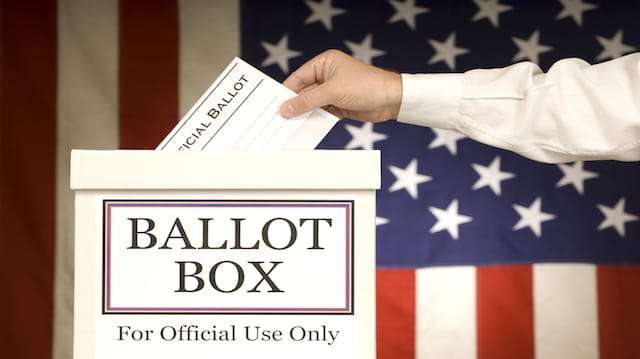The Volokh Conspiracy
Mostly law professors | Sometimes contrarian | Often libertarian | Always independent
Libertarianism and political ignorance

Most libertarians tend to believe that individuals make good decisions, if able to make free choices unimpeded by government coercion. But they also believe that voters routinely make systematically terrible decisions at the ballot box. If voters generally make good decisions, the libertarian critique of big government would be significantly weakened, and the relative unpopularity of libertarian ideology would be an important strike against it. But how can libertarians believe that the same people have good judgment in the market, yet terrible judgment at the ballot box? Many critics of libertarianism see this as a serious contradiction.
Political philosopher Jason Brennan, a leading academic expert on political ignorance and democratic theory, has a thoughtful recent post summarizing this argument against libertarianism, and offering a good response. Here is the critique:
Roughly 35% of my published work responds to problems of voter ignorance and irrationality. I sometimes get pushback from both libertarians and non-libertarians that goes roughly as follows: "Wait, so you think average people aren't competent to rule? How can you, a self-described bleeding heart libertarian, say that? Aren't you libertarians committed to the view that people are smart and can run their own lives? That they don't need government to run their lives for them? How can you say that they're smart in the market but dumb at politics? Isn't that a contradictory view of human nature?"
Frankly, these are softball questions….
[A]s to the question of voters in democracy vs actors in the market: The incentives are radically different.
When I make a market decision, I decide unilaterally. If I order a candy bar, I get a candy bar. If I order an apple, I get an apple. Further, in general, I bear the consequences of my decisions. If I make a bad choice for me, I get punished. If I make a good choice, I get rewarded.
Of course, sometimes the consequences take a long time or are hard to trace…. Still, there's a feedback mechanism. However dumb people might be naturally, markets incentivize them to be smarter.
In politics, my decision counts for basically nothing. If I stay home, vote for X, or vote for not-X, the same thing ends up happening. We all bear the consequences of the majority's decision, but no one bears the consequences of her individual decision. If I make a bad choice at the polls, I don't get punished. If I make a good choice, I don't get rewarded.
The feedback mechanism sucks. However dumb people might naturally be, politics incentivizes them to stay that way, or get dumber.
The key difference between market decisions and voting decisions is not that people are "smart" in one situation, but "dumb" in another, but that people have much stronger incentives to seek out information when the decision they are making is likely to make a real difference. In an election, the chance that your vote will make a difference to the outcome is almost always infinitesmally small. As a result, most voters are "rationally ignorant." Large numbers of voters are routinely unaware of even very basic facts about political issues, candidates, and the structure of government. In addition to having very little incentive to seek out relevant knowledge, voters also have poor incentives to do a good job of analyzing the information they do learn. Instead of acting as truth-seekers on political issues, they often act as biased "political fans" cheering on Team Red or Team Blue, and dismissing or distorting opposing evidence. Politicians and parties are well aware of widespread voter ignorance, and have a variety of strategies for exploiting it, many of which have been particularly evident in this year's election.
Consumers in markets are far from perfectly rational and informed. But they do usually do a better job than voters. If you are like most people, you probably spent more time and effort seeking out relevant information the last time you decided which car or TV set to buy than when you decide who to vote for in a presidential election or any other political race.
Because libertarians are highly critical of the modern state and diverge from mainstream public opinion on many issues, it is no surprise that libertarian scholars like Brennan and Bryan Caplan have written some of the most important recent works highlighting the dangers of political ignorance. However, as Brennan stresses, you don't have to be a libertarian to recognize that widespread voter ignorance is a serious problem. One of the more compelling recent books on the subject is Democracy for Realists, written by left of center political scientists Christopher Achen and Larry Bartels. In my review of the book, I note that the authors are, in some ways, even more pessimistic about voters' abilities than I am. Liberals, conservatives, and libertarians all have good reason to be concerned about political ignorance, even though we are likely to disagree about potential solutions.
I discuss a variety of strategies for reducing the risks of political ignorance in the just-published second edition of my book Democracy and Political Ignorance. I argue that the most promising approach is limiting and decentralizing government, thereby empowering people to make more decisions in settings where they have stronger incentives to be well-informed. But I readily admit that there a number of other strategies that deserve serious consideration as well. They including nontraditional ideas, such as the use of "sortition" methods, and directly incentivizing voters to increase their knowledge.
Readers interested in this subject should also check out Jason Brennan's own important new book, Against Democracy, which I plan to review soon. He recently summarized some of its key themes in this LA Times article.


Show Comments (0)